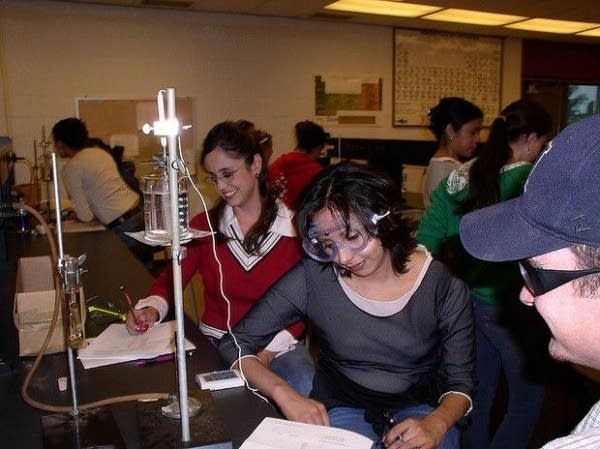Should we do postsecondary ed the European way?

For all the talk of graduation rates and four-year degrees, we haven't really heard much about vocational education, two-year certificates and all of the options that don't include a university degree.
But a little dinner this week with Bill Symonds of Harvard and some higher-ed leaders got me thinking more about it, and I hope to use a conference in May to bring it to the front of discussion.
What interested me: the idea European system of apprenticeships and technical education, which includes a lot more hands-on learning and work -- and whether any of that could work over here.
A recent report by Symonds's project, Pathways to Prosperity, focuses on how the U.S. needs to build multiple "pathways" into the workforce -- and not just rely on the one-size-fits-all system of four-year university education that so many have espoused.
Create a More Connected Minnesota
MPR News is your trusted resource for the news you need. With your support, MPR News brings accessible, courageous journalism and authentic conversation to everyone - free of paywalls and barriers. Your gift makes a difference.
It holds up Northern and Central Europe as possible models:
As the recent OECD reports suggest, other countries manage to equip a much larger fraction of their young people with occupationally relevant skills and credentials by their early twenties. Consequently, these young people experience a much smoother transition into adulthood, without the bumps and bruises so many of our young are now experiencing.
The lessons from Europe strongly suggest that well-developed, high quality vocational education programs provide excellent pathways for many young people to enter the adult work force. But these programs also advance a broader pedagogical hypothesis: that from late adolescence onward, most young people learn best in structured programs that combine work and learning, and where
learning is contextual and applied.
Symonds will be hosting a Twin Cities conference in May (details to come), but already this week's dinner -- with the state higher education commissioner, officials from private and public colleges and K-12 schools, and some outside of education -- raised some interesting questions:
How can we eliminate the stigma of vocational and technical education?
How can we restructure education to prepare students for jobs in those fields? And are the jobs really out there?
Would the European model work here?
Will business help out in this? Is it really willing to invest?
Just a heads-up about what could be a really interesting topic in the near future.